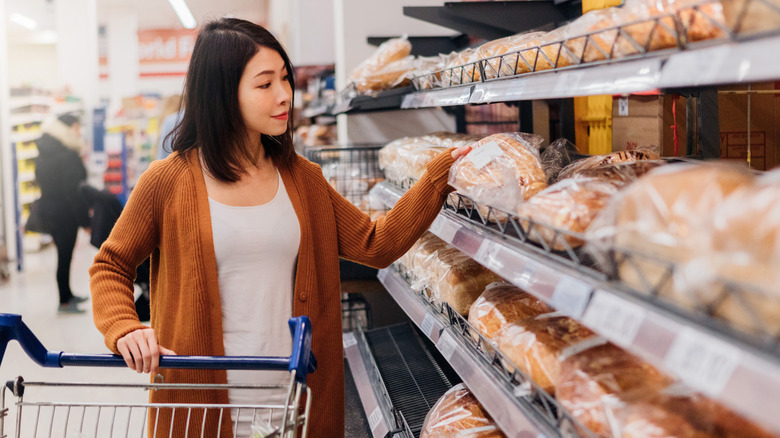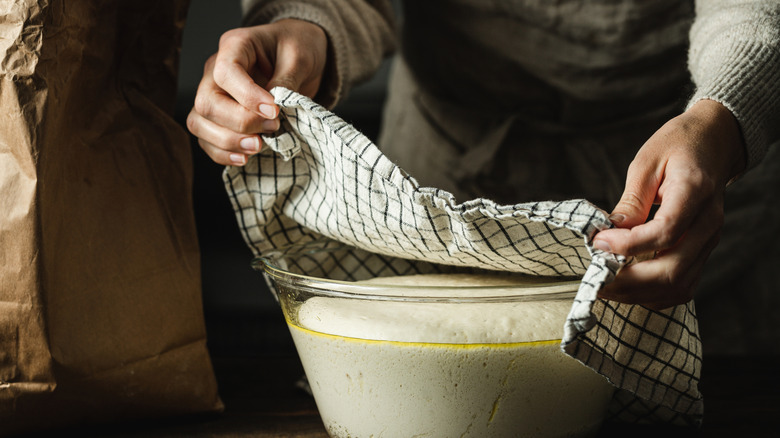The Healthiest Store-Bought Sourdough Breads Don't Have These Ingredients
Sourdough bread has risen (pun fully intended) as a star in the world of carbohydrates. And you only have to glance at its laundry list of health benefits to understand why sourdough bread is healthier than you may have thought. Sourdough bread is great for your gut, is highly digestible, and offers a low-glycemic alternative to many other breads.
There's just one problem: Some store-bought sourdough bread lacks the ingredients that give true sourdough its trademark functional food power. To learn more about which ingredients shouldn't be on the healthiest store-bought sourdough breads, Health Digest asked Angel Luk, registered dietitian, for her insights.
"If you look at the ingredients list and see 'yeast,' you can be pretty confident the natural leavening process that should take 1-2 days, did not occur," she said. "Look for a product that does not have yeast in the ingredients. If you're still unsure, your best bet is probably to call the company to ask."
Slow starters trump fast yeast
Luk noted that "the natural slow-leavening process allows the yeast and lactobacillus bacteria to digest some of the carbohydrates in the bread, thereby reducing some of the FODMAPs, which are types of carbohydrates that are poorly tolerated in varying amounts by people living with irritable bowel syndrome." In fact, a 2018 review in Foods recommended the use of sourdough bread in a low-FODMAP diet. Added Luk, "When yeast is used to speed up the process, there is less time for the reduction of FODMAPs, and therefore makes the product a less suitable choice for those with specific needs." In other words, if you're eating a low-FODMAP diet for irritable bowel syndrome or a related condition, you'll want to make sure your sourdough bread is naturally leavened.
Aside from commercial yeast, you might want to scour your next sourdough bread loaf for signs of a sour flavor-producing agent such as vinegar. In genuine sourdough bread, you would never need to add a product to create sourness. However, brands that speed up the fermentation process may decide to add a flavoring ingredient.
Choose natural or roll up your sleeves
Potassium bromate is another ingredient you might not want to see in your sourdough bread. A 2020 review in Food Chemistry explains that although potassium bromate is a commonly used dough improver or flour additive, it may also be carcinogenic, as well as cause gastrointestinal discomfort in some consumers. Additionally, a 2023 study in Heliyon recommended that potassium bromate limits be set to avoid increasing the risk of cancer in bread consumers. (Take note, though, that sourdough bread was not included in the study.)
Unless you're getting your sourdough bread from a bakery that follows the traditional (and slow) method of using a starter to give the bread sponginess and flavor, you might find it tough to get a sourdough bread that will be comprehensively health-promoting. Alternatively, you could always head to the nearest clean countertop and make your own.
Although it will take time to develop a wild yeast sourdough starter, you can use it again and again to make your own bread. And the only ingredients in a basic recipe for sourdough bread that are necessary beyond the sourdough starter are your go-to flour of choice (feel free to experiment with wheat flour for added fiber), water, and salt.



